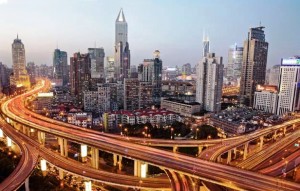The Volkswagen Group began construction on its 16th plant in China, while a strong showing in China during the third quarter also bolstered Ford and Daimler AG earnings and outlook for the future in the eyes of many financial analysts.
“This new, state-of-the-art factory is further proof of the Volkswagen Group’s comprehensive commitment in China,” said VW Chief Executive Officer Martin Winterkorn, who noted the new plant will be able to build more than 300,000 vehicles annually. “Here in Ningbo and together with our partners, our pioneering spirit is once again driving economic and technical progress in the Chinese automotive industry.
“We are working hard to offer our customers in China the best vehicles and most efficient technologies – engineered and made in China. For our Group brands, the Ningbo plant also gives new momentum to tapping the full potential of the huge market south and west of Shanghai.”
The latest developments underscore once again how China market has become the key arena in the battle for automotive supremacy between rivals such Volkswagen, General Motors and Toyota, which so far, has been left behind in China by its European and American rivals.
China Scholar Orville Schell, who, with John DeLury, has written a new book “Wealth and Power: China’s Long March To The 21st Century. “It continues to astound,” said Schell of China. China has benefitted enormously from the investment of western automakers.
During the last two decades, western carmakers have transferred a substantial amount of technology and knowledge to their Chinese partners, Schell said. The knowledge gained has been critical to rapid modernization and development of Chinese economy, added Schell, who has spent more the 40 years following developments in China and is considered on the leading experts on China in the U.S.
“Now we see, it’s going to be the most important (car) market in the world,” he said. At the same time, money earned in China has become vitally important to companies like GM, he said.
At the same time, the boom in car sales, which have made China the world’s largest market for new vehicles, has had an enormous impact on China. At the same time, the boom in car sales has fit comfortably within the pursuit of “wealth and power” that China’s political leaders have pursued for more than a century.
The development of the auto industry in China has also been exciting for the citizens of China. “Cars are like sugar,” he said. “Who doesn’t like sugar? Of course, the (Chinese) wanted cars. It’s quite easy to be seduced by the idea of private transportation.”
Schell added he wasn’t surprised that Chinese consumers adopted western and Japanese brands. “Chinese brands of all kinds don’t have a very good reputation in China. They want global brands,” Schell added.
Chinese policy makers also have helped spread out the huge investment across the country both to further the country’s economic development and in some cases to promote political goals. VW, under pressure from the government of the Peoples Republic of China also opened a relatively small plant, fully equipped with the latest technology, in the far western corner of China where minority groups have complained about a lack of opportunity.
(“Last Frontiers” to make up 20% of global auto sales. For more, Click Here.)
Meanwhile, an article in the New York Times by the paper’s Hong Kong Bureau Chief, Keith Bradsher, indicated that while western automakers are rapidly expanding their production base in China, the Chinese government continues to pursue its goal of exporting vehicles. Indeed Chinese made cars have already gained a foothold in South America.
Schell said he is not surprised no Chinese company has become a household name yet like Ford or Honda. But that doesn’t mean Chinese companies won’t be able to export vehicles to highly developed markets in North America and Europe.
(Click Here to see Ford bucking the trend by exporting vehicles to China.)
“I expect they will be able to export to niche markets,” said Schell, who said he would not be surprised if a Chinese company succeeds in selling electric or hybrid vehicles in the U.S.
The whole point of “Wealth and Power,” is that Chinese and Chinese policy makers have been steadfast over the last century in pursuing their goals and ambitions, which encompass both wealth and power that reaches beyond China’ borders.

